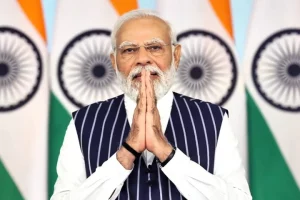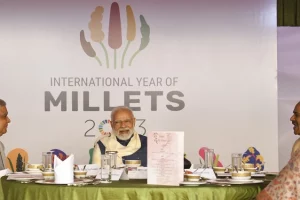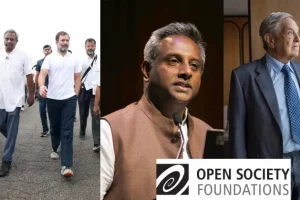Will the repealing of the three farm laws be a setback to India’s overall reform process? Insiders said that the Narendra Modi government is expected to begin a process of intense dialogue with stakeholders and farmers bodies on removing the current bottlenecks that plague the agriculture sector. What many have missed is the announcement of the formation of the new committee that will comprise representatives from central as well as state governments to delve into issues related to fertiliser, zero budget farming, change in crop patterns and transparency in establishing Minimum Support Prices among other things.
“We are a democracy and, in a democracy, you listen to everyone. While the proposed laws were intended to reform and modernise and mainstream the agriculture sector and improve the income levels of the farmers, some of them wanted more time to discuss and debate and we have decided to respect that,” Narendra Taneja, energy expert and a leader of the BJP said. He however added that the government is determined to continue to do whatever necessary to ensure our farmers also get full economic benefits of the emerging New India”
Also read: PM Modi announces repeal of three farm laws, urges agitating farmers to return home on Gurupurab
Though the contours of the committee are yet to be determined, analysts said that it will play a crucial role in ironing out differences and may even take the reform process forward in a more inclusive manner.
Nirupama Soundararajan, chief executive officer, Pahle India Foundation told India Narrative that the farm laws were critical for the agriculture sector.
“Continuation of dialogue with all stakeholders is critical and the government must work to bring them on board on all issues that need change. Building consensus on such issues will be critical and once that is done, the government must take the necessary steps to modernise the farm sector,” Soundararajan said.
The committee would also be required to look at creating a social security net for the vulnerable farmers.
In fact, Gita Gopinath former chief economist, International Monetary Fund (IMF) had earlier said that proposed reform measures had the potential to increase farmers’ incomes.
In September 2020, the government introduced three farm reform bills — The Farmers’ Produce Trade And Commerce (Promotion And Facilitation) Bill, The Farmers (Empowerment and Protection) Agreement on Price Assurance and Farm Services Bill, and The Essential Commodities (Amendment) Bill. These bills, aimed at creating a free market for sale of farm produce and removing the involvement of middlemen, have faced stringent opposition from farmers across.
Also read: Farmers welcome PM Modi’s decision to roll back three farm laws
Since then farmers’ organisations along with several other vested groups have been vehemently protesting against the move.
Agriculture is a highly sensitive subject in India and while several governments have tried to push reforms in the farm sector, there has been little headway. Interestingly, the Congress, which is vehemently opposing the passage of the bills, had tried to bring in reforms when UPA was in power.




















